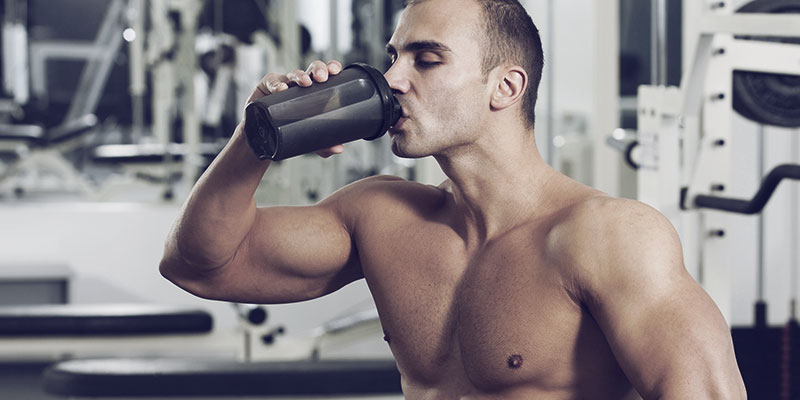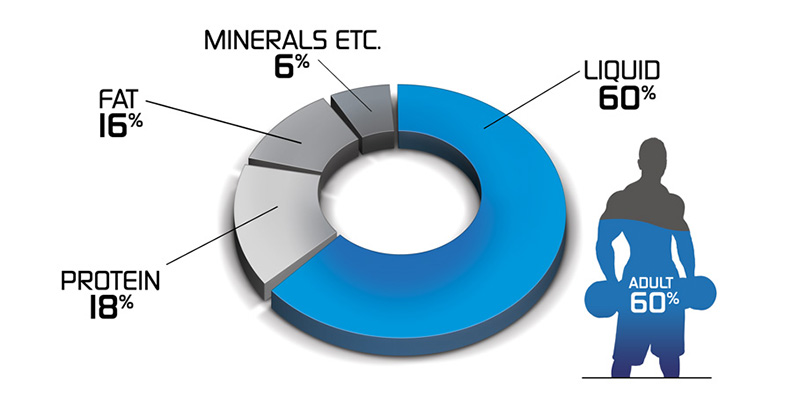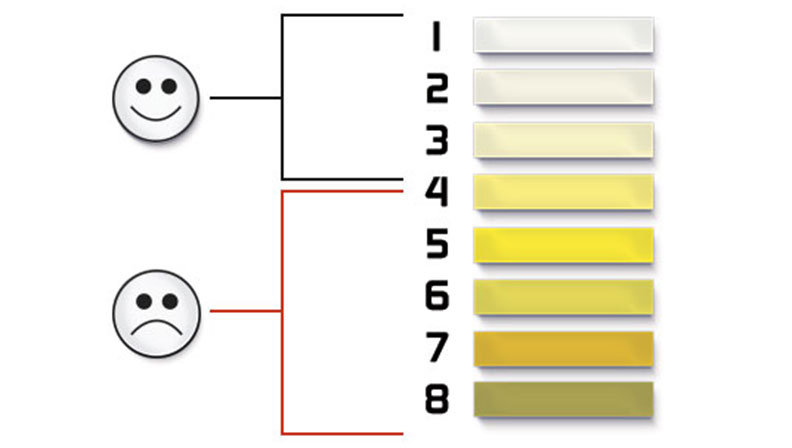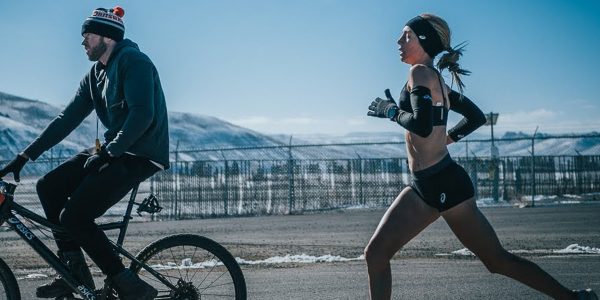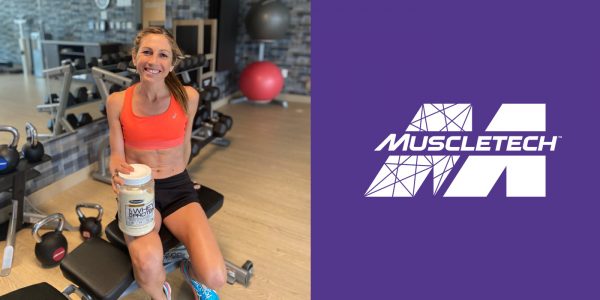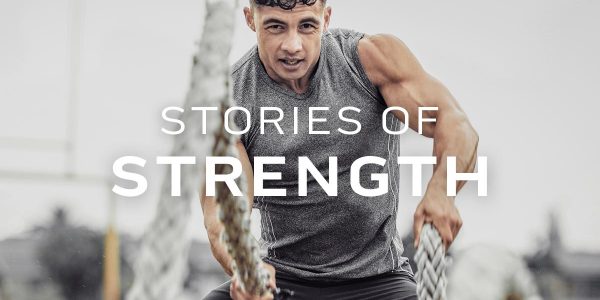If you’re one of those bodybuilders who think training, food and exercise are what building muscle is all about, keep reading. You’re going to learn just how important hydration is to your goals as a bodybuilder and why those guys at the gym with the giant jugs of water might just be the smartest lifters in the place.
Effects of Dehydration
Body water will vary with your age and sex. About 45% to 50% of body weight in females is water, however since males generally have higher amounts of lean mass, their body water is around 50% to 60%. More lean mass generally means a higher percentage of your body is water, and as such, a higher amount of water intake is required to avoid dehydration!
Science shows that being well hydrated will allow you to perform better than if you’re even slightly dehydrated! In fact, a single day of moderate dehydration can drastically effect your strength, concentration and energy levels, and in turn, your muscle gains. It is well documented that a loss of just 2% (2 lbs. for a 200 lbs. bodybuilder) of body water yields performance loss, and beyond that, when we have dehydration of 5% we enter a level for more serious health risks.
Two separate studies have shown that low to moderate dehydration (about 3% water loss) causes a significant reduction in muscular endurance and power output during training with the effects being most notable on lower body lifts. In the first study, peak power decreased 14.48% in the upper body and 18.36% in the lower body! The second study showed that 3% dehydration impaired resistance exercise performance, decreased repetitions, increased perceived exertion, and slowed recovery.
In another study on the effects of mild dehydration (1-2% water loss) and cognitive function in women, researchers found that subjects had reduced concentration and energy, increased perception of exertion, greater fatigue and negative mood changes.
When dehydrated, the fluid loss causes a drop in blood volume, which makes your heart need to work harder to push oxygen and nutrients through the bloodstream to the brain and muscles. So, if you find yourself constantly tired and unfocused – despite adequate sleep, have a look at your water intake.
To summarize:
Dehydration= Less Strength, Fewer Reps, Less Endurance, Slower Recovery
The Water Content Range for Selected Foods
| Percentage | Food Item |
|---|---|
| 100% | Water |
| 90-99% | Fat-free milk, cantaloupe, strawberries, watermelon, lettuce cabbage, celery, spinach, pickles, squash (cooked) |
| 80-89% | Fruit juice, yogurt, apples, grapes, oranges, carrots, broccoli (cooked), pears, pineapple |
| 70-79% | Bananas, avocados, cottage cheese, ricotta cheese, potato (baked), corn (cooked), shrimp |
| 60-69% | Pasta legumes, salmon, ice cream, chicken breast |
| 50-59% | Ground beef, hot dogs, feta cheese, tenderloin steak (cooked) |
| 40-49% | Pizza |
| 30-39% | Cheddar cheese, bagels, bread |
| 20-29% | Pepperoni sausage, cake, biscuits |
| 10-19% | Butter, margarine, raisins |
| 1-9% | Walnuts, peanuts (dry roasted), chocolate chip cookies, crackers, cereals, pretzels, taco shells, peanut butter |
| 0% | Oils, sugars |
Source: The USDA National Nutrient Database for Standard Reference. Release 21 provided in Atlman
The Lifters Hydration Strategy
Hydration strategies for bodybuilders and other athletes are different than for the average sedentary individual. The recommendation for non-lifters is 6-8 glasses of water per day. However as bodybuilders, we have to assume that enhanced metabolic rate of muscle contraction requires a larger delivery of nutrients and oxygen along with faster waste and heat removal from the body and therefore would require significantly more water than the couch potato. In addition athletes require additional water to support the higher levels of muscle mass, metabolic activity, and the higher sweating rates – especially those who live in the southern United States and other hot climates.
Normal individuals generally consume about 42 oz. of water from their daily food intake and from cellular metabolism. Keep in mind that bodybuilders are eating more food than the average person and that they have a higher metabolic rate, so you might be getting as much as 67 oz. or more of water per day just from food and cellular metabolism.
When it comes to hydration from water, your overall size will dictate how much water you need. There is simply no blanket statement we can make that would cover bodybuilders of all sizes. However we can narrow it down to a simple a formula that you can use to determine how much water you require based on your bodyweight:
Min. Amount of Water per Day in Oz. = Body weight in lbs. x 0.66
This is the minimum amount you should consume per day. It’s always wise to consume more if you notice you’re sweating excessively due to the heat or an extended training session.
Urine as a Hydration Gauge
Use your urine color as a barometer of how much, if any, water you need outside the formula above. If your urine is clear, you’re adequately hydrated; but if you have darker colored urine, you should consume more water. Start with 8 oz. and keep drinking until your urine returns to being nearly clear. Remember that some vitamin supplements with artificial colors may show up as a strong yellow color, which will throw off using your urine color as a gauge.
If your urine matches the colors numbered 4 to 8 then you are DEHYDRATED and need to drink more fluid.
If you urine matches the colors numbered 1, 2, or 3 you are HYDRATED
Timing
There are several key times when drinking (or not drinking) water is important:
Before Training
16 oz. to 32 oz. 1 hour before exercise
8-12 oz. 20-30 minutes before exercise. At this point you’ll likely want to take a pre-workout like #Shatter SX-7 or Nano Vapor, and that’s ok. Your pre-workout fluid intake counts here.
During Training
Every 15 minutes: Drink 8-1/2 ounces to 10 ounces of water. Bump this up to 12 oz. or more every 15 minutes if you’re training in high temperatures.
After Training
Post workout, consume about 6 to 8 oz. of water with some protein.

